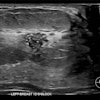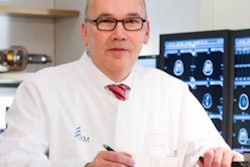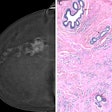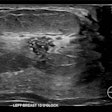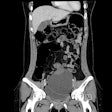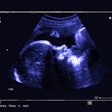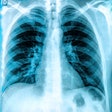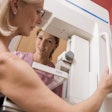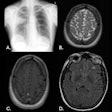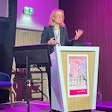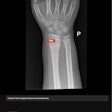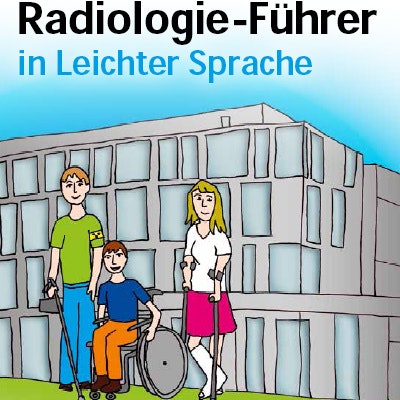
The Jena University Hospital (UKJ) has received the 2016 KU Award in the patient communication category for its Plain Language Guide to Radiology project, the German Radiological Society (DRG) has announced.
"In radiology, dealing with vulnerable patients is a matter of particular relevance," explained Dr. Ulf Teichgräber, professor and director of the Diagnostic and Interventional Radiology Institute at the UKJ. "This also poses a great challenge, because we, as radiologists, feel a particular duty toward vulnerable people when it comes to giving them advice and guiding them through various investigations."
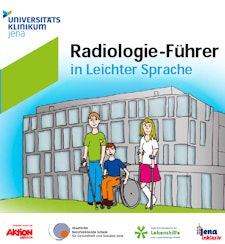 The front page of the booklet. Image courtesy of UKJ.
The front page of the booklet. Image courtesy of UKJ.The Plain Language Guide helps vulnerable patients to gain a better understanding of the complexities that occur from time to time in connection with radiological investigations. It was created by the Regional Occupational Training School for Health and Social Affairs (SBBS) in Jena, the Welfare Counselling Service in Saale, and the UKJ.
The aim of the booklet is to set out the processes followed in radiology in a way that people with learning difficulties or mental health problems will be able to understand. It is written in a style known as "plain language"; short sentences, simple words, and positive language are some of the distinguishing features of this style.
Following in-depth research in the radiology department at the UKJ, 18 student health education nurses compiled the guide, supported by six members of staff from the Vulnerable Persons Workshop run by the Saale Welfare Service.
"It is particularly important to us to work with vulnerable patients on such projects, not just for them," said Holger Gerlach, lecturer at the SBBS in Jena. The goal is to incorporate an inclusive project of this type every academic year to raise student awareness on the subject of inclusion, he added.
Through the booklet, the partners in the project are aiming to empower people with any form of mental incapacity to achieve greater independence in managing their own health. It is also designed to explain radiological investigations to children, elderly people, and people for whom German is not their first language.
"In radiology in particular, patients often find it difficult to understand medical terms and details of how investigations are carried out," Teichgräber said. "The Radiology Guide is the ideal tool for making sure that patients have all the right information -- regardless of whether or not they are vulnerable."
In September 2016, the same project received a diversity prize, called Hochschulperlen, given by the Association of German Science Foundations. Hochschulperlen are awards given to projects that qualify as excellent for addressing and promoting diversity in higher education establishments, giving prominence to the various forms of potential that this offers, and contributing to appreciation of diversity.
Editor's note: This is an edited version of a translation of an article published in German online by the German Radiological Society (DRG, Deutsche Röntgengesellschaft). Translation by Syntacta Translation & Interpreting. To read the original article, click here.


